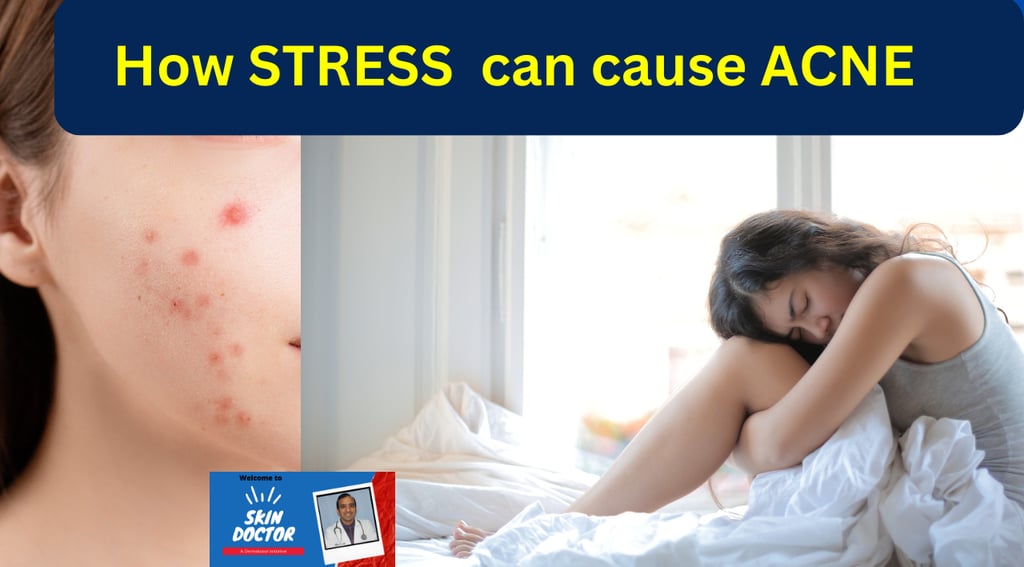How stress can cause ACNE
Stress can trigger and also flare up acne (pimples) this blog post delves into how mechanisma come into play for psychological stress to cause acne and the importance of avoiding stress and adopting a healthy life style is indispensable in acne control and prevention
Dr.Sujith Karimbil
8/18/20232 دقيقة قراءة
watch the prp procedure being done
click here now to watch https://youtu.be/_oEMEnPGVoo


Neuropeptides, Stress, and Acne: Unraveling the Skin-Mind Connection
Introduction: Acne, a common skin condition that affects people of all ages, is not solely confined to external factors like oil production and bacterial colonization. The intricate interplay between the nervous system, hormones, and inflammation has revealed a fascinating connection between neuropeptides and the development of clinical inflammation in acne. Let's delve into this phenomenon and explore how stress can contribute to acne formation.
The Role of Neuropeptides: Neuropeptides, which are small proteins produced by nerve cells, have been found to exert both hormonal and non-hormonal actions in the body. These bioactive molecules are not only involved in transmitting signals between nerve cells but also play a significant role in regulating various physiological processes, including inflammation. In the context of acne, neuropeptides like Substance P have garnered attention.
Substance P and Acne: Substance P, a neuropeptide abundant in immune-reactive nerve fibers within acne-prone skin, has shown to exert influence on sebaceous glands. When sebaceous glands encounter Substance P, they respond by synthesizing neutral endopeptidase, an enzyme involved in breaking down neuropeptides. This reaction is believed to play a role in modulating inflammation in the skin.
The Stress Connection: Now, let's unravel the connection between stress and acne. Stress triggers a cascade of hormonal responses in the body, including the release of cortisol, commonly known as the stress hormone. Elevated cortisol levels can stimulate sebaceous glands to produce more oil, creating an environment conducive to acne development. Furthermore, stress-induced inflammation can exacerbate existing acne lesions and contribute to the formation of new ones.
Stress-Induced Hormonal Changes: Stress not only influences hormone levels directly but can also impact behaviors that exacerbate acne. Stress may lead to poor dietary choices, irregular sleep patterns, and neglect of skincare routines, all of which can contribute to acne development. In turn, these behaviors can disturb hormonal balance and increase the likelihood of acne flare-ups.
The Mind-Skin Connection: The connection between neuropeptides, stress, and acne highlights the fascinating interaction between the mind and the skin. While genetics and external factors do play a role in acne, the role of internal processes cannot be underestimated. Acknowledging the mind-skin connection empowers individuals to adopt a holistic approach to skincare that includes stress management.
Conclusion: In the complex landscape of acne, neuropeptides and stress form a crucial intersection that impacts inflammation and acne development. Understanding this connection not only sheds light on the underlying mechanisms of acne but also underscores the importance of managing stress for healthy, clear skin. By adopting stress-reduction techniques, maintaining a balanced lifestyle, and seeking professional skincare guidance, individuals can work towards minimizing the impact of stress-induced acne and promoting overall skin health.
